Elizabeth Street is an east-west street in North Richmond, between Hoddle Street and Church Street. To the west, over Hoddle Street, it links to Albert Street, which hosts separated and then protected bicycle lanes heading into the central business district.
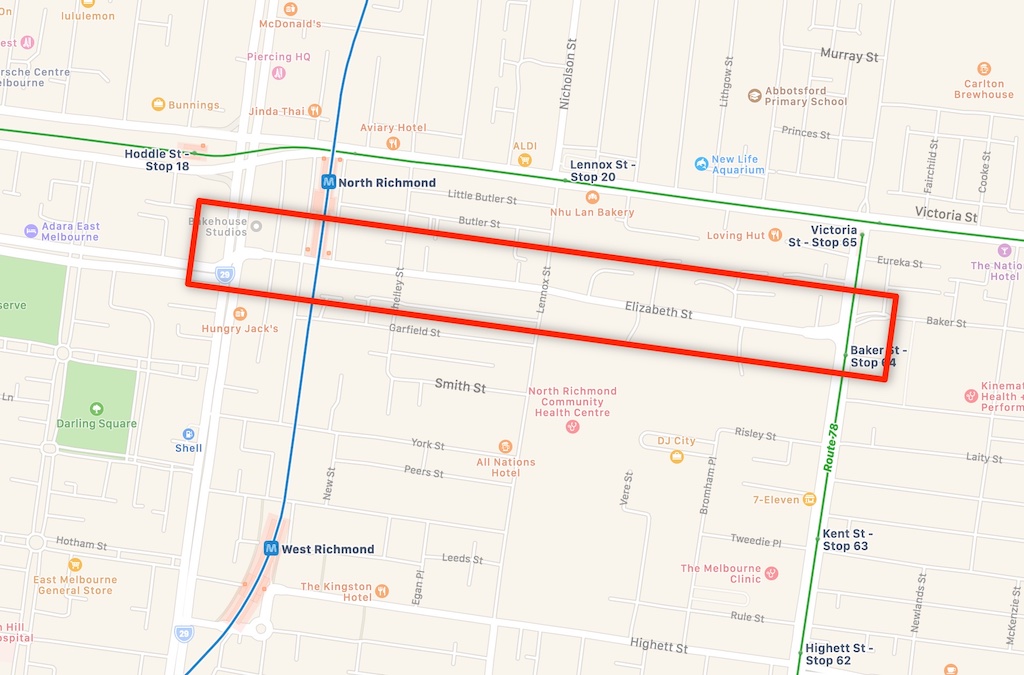
Previous conditions
Previously, Elizabeth Street hosted bicycle lanes located in the ‘dooring zone’ of the parked cars, which exposed people who cycle to hazards that carry the risk of serious injury or death. Such ‘door zone’ bicycle lane designs don’t comply with Austroads or VicRoads guidelines, and dissuade many people from cycling.
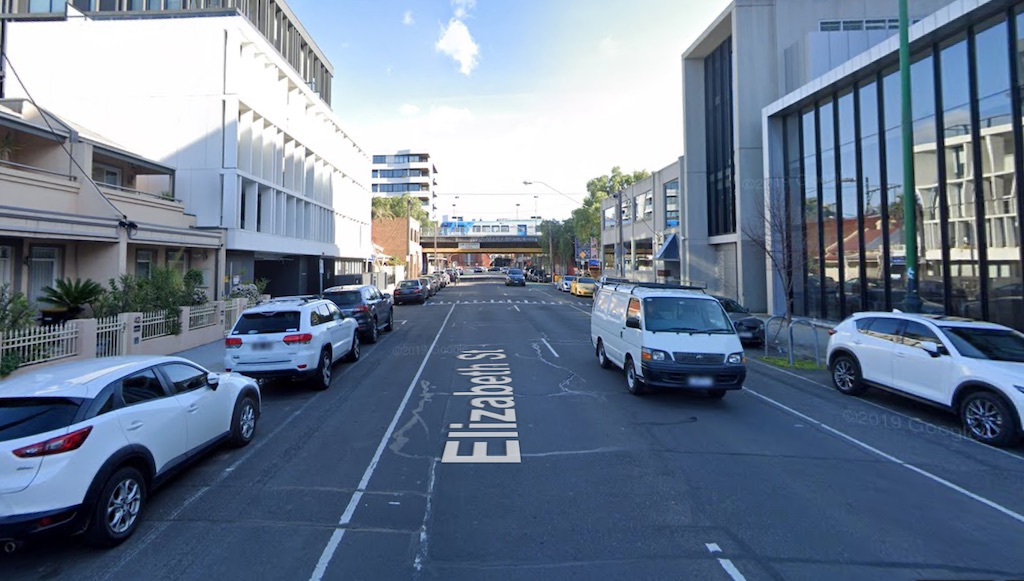
Trial infrastructure
In 2019 council began a trial of protected bicycle lanes using low-cost infrastructure:
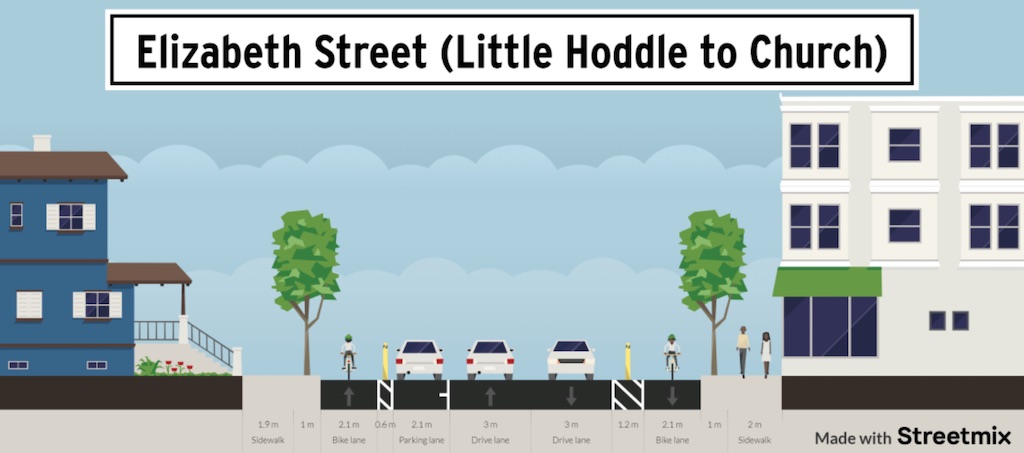
Permanent infrastructure
Council has now determined that the bike lanes will be permanent, and is seeking funding for higher-cost, permanent treatment, with more trees:
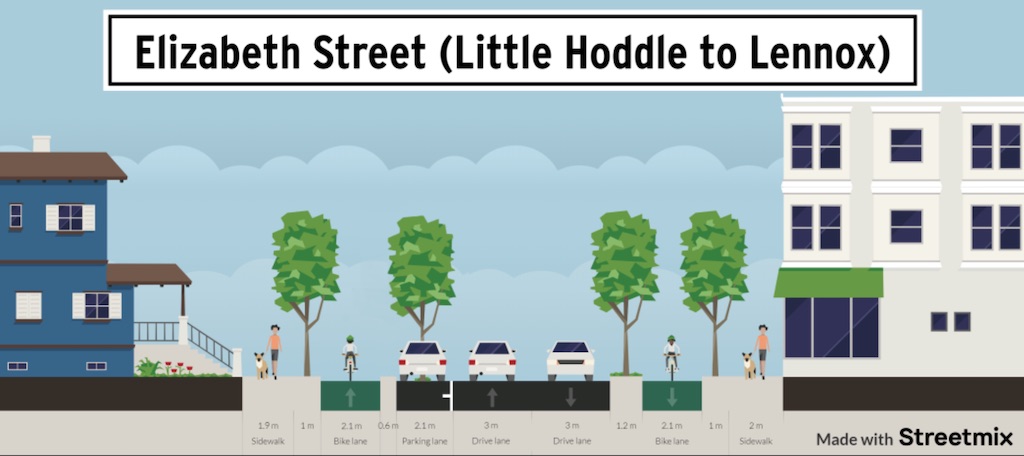
Implementation
This video shows that local families with children are now happy to cycle on Elizabeth Street, owing to the increased safety:
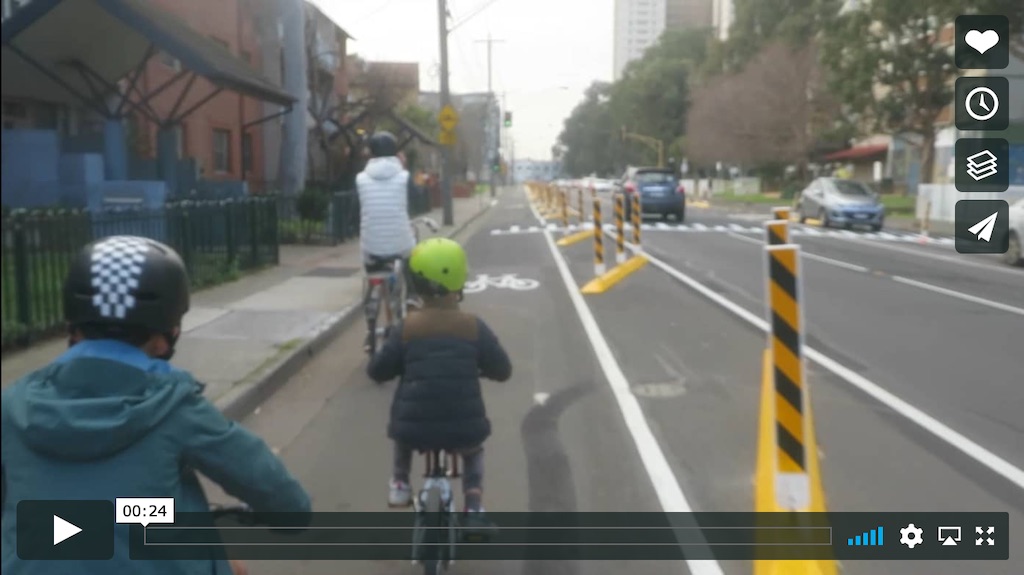
This video offers a before/after comparison of the trial:
Support from the RACV
Metropolitan councils across Melbourne should follow the City of Melbourne’s lead to create pop-up bike lanes and wider footpaths as the city emerges from lockdown, says RACV.
RACV

Our view
We agree with the Council Report and Officer Recommendation, and support an ‘iterative trial’ approach, which is a great way to allow residents and ratepayers to experience the proposal in a fast, low-cost manner, before Council spends more money on a higher-cost, permanent installation.
Project delivery processes and funding allowances for sustainable transport projects have not kept pace with development and population growth resulting in increased congestion, increased conflict between transport modes and a reduction in the attractiveness of traveling by active transport modes and sustainable transport. These trends will continue to worsen unless Council adopts processes and practices that better match the policy intent, so that key transport projects can be delivered more quickly and more cheaply.
Council Report 3rd December 2019
Join us
Your local champion for Elizabeth Street is Sarah Cather – Yarra resident. View all of Streets Alive Yarra’s champions on our supporters page.
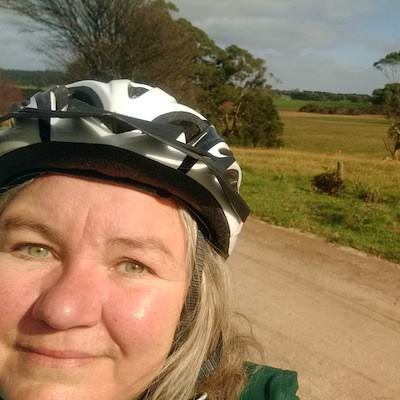
Cycling was a lifeline to so many bike riders here in Yarra during our prolonged months of lockdown and with an ever-increasing popularity of pedal power in Melbourne, we need to continue advocating for improved bike infrastructure to accommodate the load. I love the invigorating buzz of people that cycling brings to our neighbourhood, as commuters, school children – mine included – business folk and a myriad of generations cross paths along their daily journey. My family have lived in Richmond since 2004 and have been using the bike paths to commute, shop, dash into the city and do longer rides back from Eltham as a great day out. We depend on progressive initiatives such as Streets Alive Yarra to keep our cogs spinning into the future and importantly, our streets safer.
Sarah Cather
